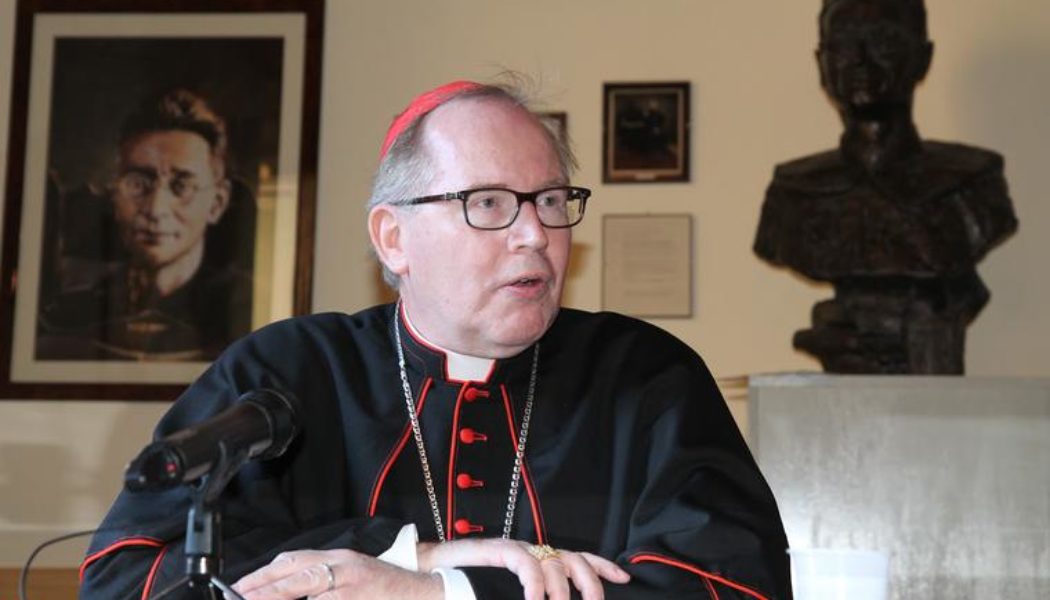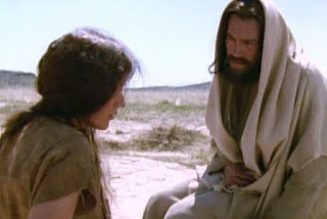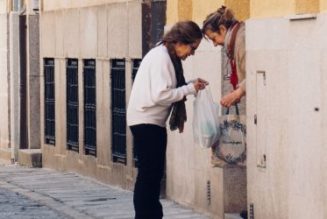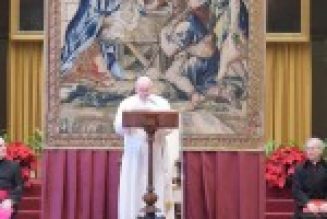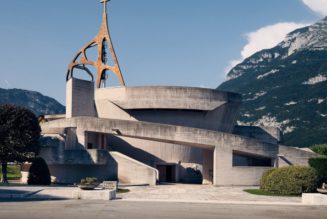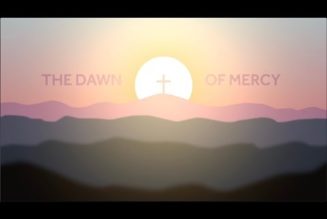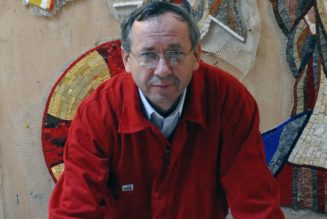
VATICAN CITY — Two members of the Vatican’s Pontifical Academy for Life have come under fire for publicly urging support for assisted suicide as a tactic to prevent the legalization of voluntary euthanasia in Italy.
Jesuit Father Carlo Casalone, a professor of moral theology at the Pontifical Gregorian University, proposed such an approach that critics stress fully contradicts Church teaching in a Jan. 15 article in the Jesuit periodical La Civilta Cattolica — a journal whose articles are cleared by the Secretariat of State.
His view was supported by fellow academy member Marie-Jo Thiel, professor of ethics at the University of Strasbourg, who wrote in the French newspaper Le Monde on Jan. 31 that Father Casalone’s suggestion was a sign of a broader change in the Church’s position.
Father Casalone, a physician who also heads the Cardinal Carlo Martini Foundation, penned his article ahead of a decision taken by the Italian Constitutional Court on whether to hold a referendum on euthanasia in the country.
The court had already legalized assisted suicide under very specific and well-defined conditions in 2019, but that led to a push by pro-euthanasia campaigners for a nationwide referendum on voluntary euthanasia.
Their campaign ended up in the Constitutional Court this month, backed by a petition of 1.2 million signatures from pro-euthanasia advocates, far exceeding the 500,000 needed to hold a popular vote amending existing laws.
But the court rejected it on Feb. 15, ruling that a referendum was “inadmissible” and arguing that a change in the country’s penal law to allow voluntary euthanasia would not ensure “the minimum constitutionally necessary protection of human life, in general, and with particular reference to the weak and vulnerable.”
Medically assisted suicide involves a person with a terminal illness or incurable condition ending their life at their own request with a lethal dose of drugs; voluntary euthanasia legally allows a doctor to kill a patient suffering from an incurable and painful disease or in an irreversible coma, with the consent of the patient.
Father Casalone argued in his article that giving an “overall negative evaluation” of legislation calling for voluntary euthanasia would risk “favoring the referendum” and its aim to legalize it.
He therefore suggested invoking the principle of “imperfect laws,” whereby in some cases it has been licit for a Catholic politician to vote in favor of a law that restricts one already passed that is contrary to Church teaching, for instance voting to reduce the legal time period for abortion from 24 to 16 weeks.
In this case, he believed that principle could apply to favoring assisted suicide, purportedly a lesser evil, in order to prevent the greater evil of voluntary euthanasia — a suggestion that also appeared to have some sympathy from the chancellor of the Pontifical Academy for Life, Msgr. Renzo Pegoraro.
“We are in a specific context, with a choice to be made between two options, neither of which — assisted suicide or euthanasia — represents the Catholic position,” Msgr. Pegoraro told the French Catholic newspaper Le Croix, adding that he believed some kind of law was a foregone conclusion.
Msgr. Pegoraro, who is also a physician, said that, of the two possibilities, “assisted suicide is the one that most restricts abuses because it would be accompanied by four strict conditions: the person asking for help must be conscious and able to express it freely, have an irreversible illness, experience unbearable suffering and depend on life-sustaining treatment such as a respirator.”
But Cardinal Willem Eijk, also a qualified medical doctor and a member of the academy, firmly rejected Father Casalone’s suggestion and argumentation.
The cardinal-archbishop of Utrecht in the Netherlands argued that there is “no significant moral difference” between medically assisted suicide and voluntary euthanasia, “neither from the patient’s side nor from that of the physician,” as both bear “the same moral responsibility” in carrying out a murder.
The cardinal told the Register that, in allowing assisted suicide, “one is confined to also allow euthanasia,” and therefore the argument that by allowing the legislation of assisted suicide one could prevent the legislation of euthanasia “makes no sense.”
“One would simply and automatically pave the way for legalizing euthanasia, because the ethical difference between both is not significant,” he said.
Cardinal Eijk also rejected the “imperfect-laws” argument in this case. He pointed out that the principle was raised by Pope St. John Paul II in his encyclical Evangelium Vitae (73) in the context of restricting abortion but added that “voting for a law by which medically assisted suicide is allowed by no means implies a restriction to legalizing euthanasia.”
“On the contrary,” he said, “legalizing medically assisted suicide automatically paves the way for legalizing euthanasia as the next logical step, for no significant moral difference exists between medically assisted suicide and euthanasia.”
Jacopo Coghe, vice president of the Italian pro-life group Pro Vita & Famiglia Onlus, agreed that “it is not moral to favor laws on euthanasia or assisted suicide. Period.”
He added that those who think otherwise “go against repeated warnings of Pope Francis and the Congregation for Laity, Family and Life.” Coghe also told the Register that the argument put forward by Father Casalone is an “illusory approach” that will be unable to “withstand social pressure or judicial intervention,” as has been witnessed with other similar legislation.
The correct course of action, Coghe said, is “always to evangelize,” to proclaim God’s love to the world, “which gives meaning to life and always makes it worthy.” He added that the “Church’s urgency” is not about “whether or how to pass assisted-suicide laws, but to help millions of uninformed, deceived and lost faithful cope with the changing times and the crises they face.”
The public statements of Father Casalone and Thiel in favor of legislating for assisted suicide have “disturbed” other members of the academy, said Jean-Marie Le Méné, president of the Lejeune Foundation. The organization is named after Jérôme Lejeune, the founding president of the academy.
Le Méné, who is also an academy member, criticized his two fellow members in a commentary in the French daily Le Figaro, saying that “it is one thing for people to express their personal opinion; it is quite another to use their positions to officially commit the Pontifical Academy for Life.” Moreover, he said it was “just as well” other members were not consulted, as the academy cannot support such positions contrary to the Church’s magisterium.
He also echoed Cardinal Eijk’s rejection of the application of Article 73 of Evangelium Vitae in this instance, as he said it would be a matter of “deliberately enacting an evil law to avoid another future one, which would be more evil.”
“The law it is purported to avoid will end up passing even faster,” he warned. “Nothing and no one will prevent extending the initial transgression, which invites medicine to bring about death.”
In comments to the Register, Le Méné said there is “no reason to think that this teaching could be changed” and that the prohibition of killing “largely predates Christianity; it is a matter of natural morality.” Voting for an immoral law, he said, “can never be the choice of a Christian,” he said, and if the academy were to “fall into the trap of the lesser evil [that] would make it lose its justification.”
Le Méné also criticized Thiel for stating publicly in her article that she was a member of the academy. Academy members are bound by its statutes, namely article 5 §5(b), which states that academicians must “commit to promoting and defending the principles related to the value of life and the dignity of the human person, interpreted in a way that conforms with the magisterium of the Church.”
Le Méné said to support legislation in favor of assisted suicide “is a departure” from such a prescription.
Le Méné said such incidents could be avoided if there was greater collaboration between academicians and decisions taken together on what works are “worthy of publication and which are not.”
The Register asked the Pontifical Academy for Life if it wished to comment on the apparent breach of the academy’s statues and if action would be taken to prevent such statements in the future, but it did not respond.
In a Feb. 18 statement, the academy “warmly welcome[d]” the Constitutional Court’s decision of Feb. 15, saying that a referendum “would have opened the way to euthanasia.” It also made a point of stating that it “reiterates the teaching of the Catholic Church, reaffirms the value and respect for every human life, is opposed to suicide, therefore also to assisted suicide, as recalled several times by the Pope.”
Le Méné told the Register Feb. 18 that he respected the judges’ decision, adding he did not think the court “needed Father Casalone’s article to understand that the referendum on the homicide of a consenting person was madness and that it should be rejected.”
But he added that, in the absence of a referendum, parliament will still try to legislate for it, and Father Casalone’s article “provides justification for it to be passed.”
Join Our Telegram Group : Salvation & Prosperity
